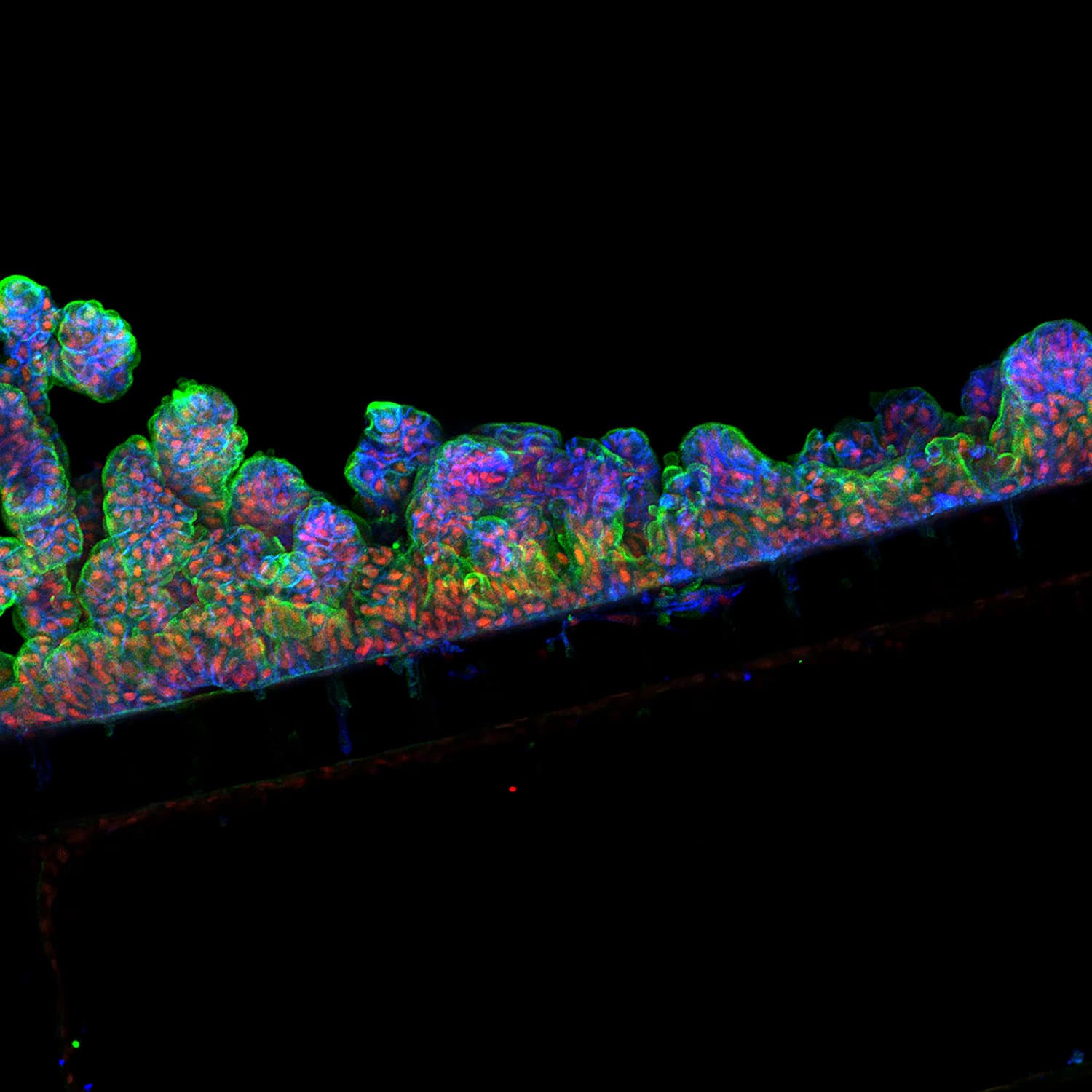Organ-on-a-Chip
Patients with debilitating gastrointestinal diseases like Crohn's disease, ulcerative colitis, and irritable bowel syndrome often have to try several costly treatments before they find one that works for them. These drugs can cause individuals painful side effects or ultimately be ineffective for their personal conditions. However, a new testing tool called an "Intestine-Chip" could save patients this pain and cost.
Intestinal lining cells created from an individual's adult stem cells can be placed on a chip and mirror what is happening inside that individual's body, according to a study from researchers at the Cedars-Sinai Board of Governors Regenerative Medicine Institute and Emulate, Inc. in Boston.
So, instead of testing drugs within a patient, you could test them on the Intestine-Chip first, protecting the patient from needlessly experiencing negative side effects. This could also reduce the amount of drug used, the difficulty of the application, and potentially the cost of the testing. This study was recently published in the journal Cellular and Molecular Gastroenterology and Hepatology.
Improving Medicine
Not only would Intestine-Chip allow researchers to better test drugs for patients, it could also give researchers more control in studies of these cells. Because the cells are on a chip and in a controlled environment, researchers can more easily study how they interact with immune cells and blood cells (as well as drugs) and better understand cell function.
"This is an important advance in personalized medicine." -Clive Svendsen
Additionally, the fact that the chip uses stem cells allows doctors to study a patient's intestinal lining without having to perform invasive surgery to obtain a tissue sample, Clive Svendsen, director of the Cedars-Sinai Board of Governors Regenerative Medicine Institute and a co-author of the study, said in a press release. And the process is good for more than one test, too.
"We can produce an unlimited number of copies of this tissue and use them to evaluate potential therapies," Svendsen said in the press release. "This is an important advance in personalized medicine."
Replicating organs on chips is not a new concept. Scientists are exploring this type of research with a variety of organs, even the human brain. Beyond improving and advancing personalized medicine, it could cut testing costs and one day replace animal testing.
Share This Article
